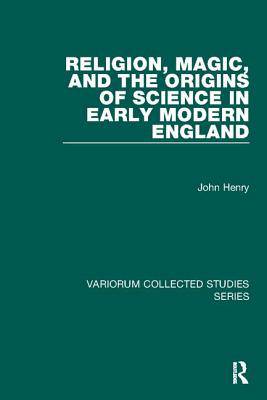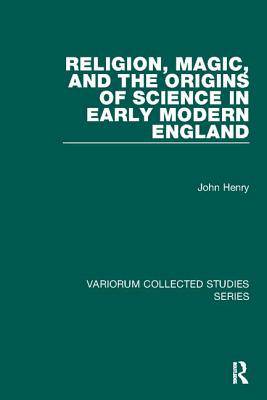
- Afhalen na 1 uur in een winkel met voorraad
- Gratis thuislevering in België vanaf € 30
- Ruim aanbod met 7 miljoen producten
- Afhalen na 1 uur in een winkel met voorraad
- Gratis thuislevering in België vanaf € 30
- Ruim aanbod met 7 miljoen producten
Zoeken
Religion, Magic, and the Origins of Science in Early Modern England
John Henry
€ 70,45
+ 140 punten
Uitvoering
Omschrijving
In these articles John Henry argues on the one hand for the intimate relationship between religion and early modern attempts to develop new understandings of nature, and on the other hand for the role of occult concepts in early modern natural philosophy. Focussing on the scene in England, the articles provide detailed examinations of the religious motivations behind Roman Catholic efforts to develop a new mechanical philosophy, theories of the soul and immaterial spirits, and theories of active matter. There are also important studies of animism in the beginnings of experimentalism, the role of occult qualities in the mechanical philosophy, and a new account of the decline of magic. As well as general surveys, the collection includes in depth studies of William Gilbert, Sir Kenelm Digby, Henry More, Francis Glisson, Robert Boyle, Robert Hooke, and Isaac Newton.
Specificaties
Betrokkenen
- Auteur(s):
- Uitgeverij:
Inhoud
- Aantal bladzijden:
- 328
- Taal:
- Engels
- Reeks:
Eigenschappen
- Productcode (EAN):
- 9781138117075
- Verschijningsdatum:
- 22/05/2017
- Uitvoering:
- Paperback
- Formaat:
- Trade paperback (VS)
- Afmetingen:
- 152 mm x 229 mm
- Gewicht:
- 607 g

Alleen bij Standaard Boekhandel
+ 140 punten op je klantenkaart van Standaard Boekhandel
Beoordelingen
We publiceren alleen reviews die voldoen aan de voorwaarden voor reviews. Bekijk onze voorwaarden voor reviews.











